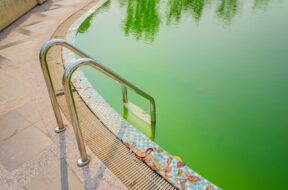

Want to learn more about algaecide? Read on to find out when to add algaecide to your pool maintenance routine and other helpful tips.
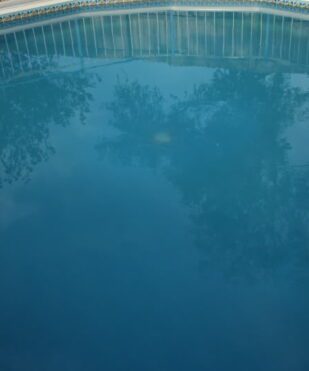
There are few things that can stop a pool party altogether—one of these things is cloudy swimming pool water. Cloudy water can be potentially dangerous, so never swim if your water looks less than clear. Testing your pool chemistry can determine whether this issue is caused by a chemical imbalance…

On this article, we help you understand the factors you should consider when choosing a new swimming pool liner.
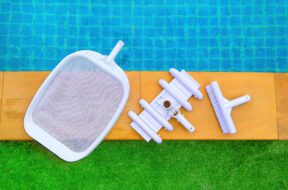
Priming your pool pump is key to your overall pool maintenance and health. Read on to learn how to prime your pump in 5 simple steps.

What you sanitize your pool with is one of the most crucial decisions you will make as a pool owner. Contrary to popular belief, there are many different ways to clean your pool. Chlorine is a great and reliable option, but it isn’t the only one.
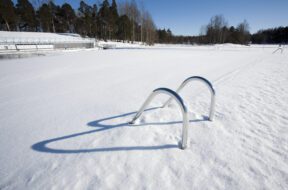
Winterizing your pool doesn’t need to be difficult. You need to plan on spending a few hours over the course of about a week to go through all of the steps.
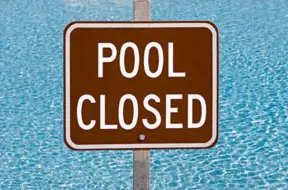
Winterizing your pool correctly makes sure it’s ready for the next season. Here’s some guidelines to help you decide when to close your pool.
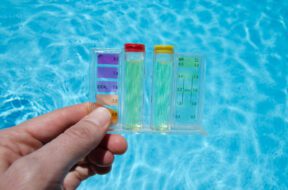
In general, chlorine levels should be tested at least twice per week. However, the answer to this question depends heavily on how often your swimming pool is used, who uses your pool, and weather events that may introduce a large amount of fresh water into your pool.
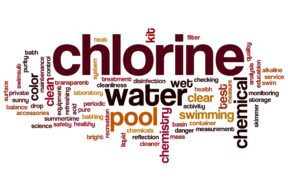
Chlorine is the most important chemical when it comes to maintaining sparkling clean water that is safe to swim in. Chlorine sanitizes your pool water by attacking and killing harmful microorganisms, called contaminates, that could lead adverse health consequences. Therefore, it is critical to know how to test the chlorine in your pool or hot tub, as well as what to do when your chlorine levels are outside recommended ranges.
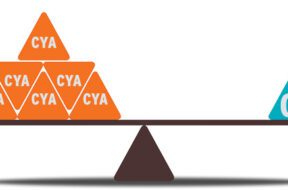
The degree to which chlorine is effective in sanitizing your pool by breaking down contaminants is highly correlated to the degree to which pH is kept in balance.
In this article, we dive into the relationship between chlorine and pH, and how pH of water changes the effectiveness of chlorine.
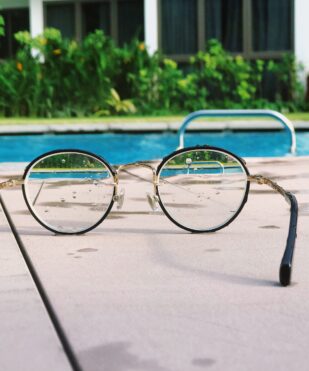
New to owning a swimming pool? This article explains water testing and what you need to know to keep your pool water clear and balanced.
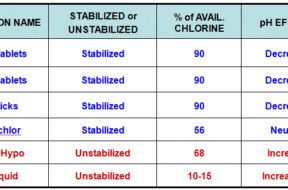
Sanitizers come in liquid, powder, and tablet form, and many pool owners have questions about the differences between them. In this article, we will get your questions answered.

Temperatures are dropping and fall has arrived! Now is the time to start thinking about winterizing your above ground swimming pool.
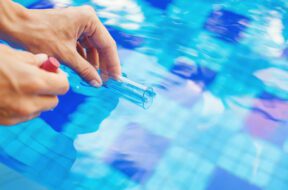
Cyanuric acid stabilizes free chlorine by preventing it from evaporating from UV sunlight, which increases the lifespan of free chlorine but decreases its ability to sanitize swimming pool water.
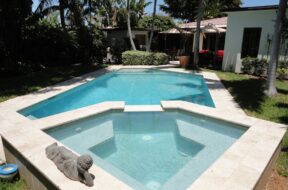
The suggested cyanuric acid level depends on the amount of direct sunlight your pool receives and whether you use a salt chlorine generator.
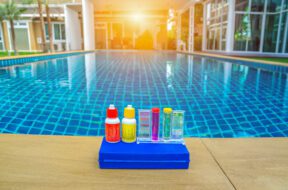
Test strips are the easiest way to test cyanuric acid. Cyanuric acid is raised by adding chlorine stabilizer containing cyanuric acid. The only way to lower cyanuric acid is by replacing water.
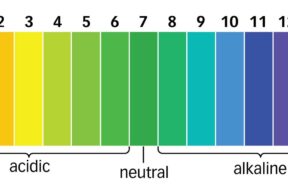
The ideal pH level in both swimming pools and hot tubs is 7.4 to 7.6. This is the level where water is most comfortable for swimmers while also maximizing chlorine’s sanitizing ability.
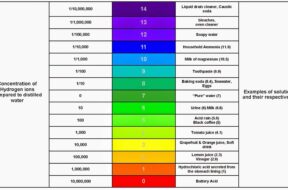
Maintaining both pH and total alkalinity in your swimming pool is important for keeping your pool properly sanitized and non-corrosive. Total alkalinity is to pH what cyanuric acid is to free chlorine. Total alkalinity stabilizes pH levels. The ideal pool pH level is 7.4 to 7.6. The ideal total alkalinity level is 80 to 120 ppm.
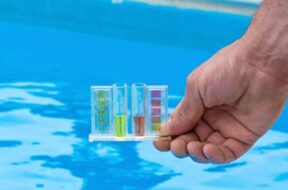

Want to know what the different types of chlorine mean? Read on to learn about Free chlorine, combined Chlorine, and Total chlorine.


Want to learn more about algaecide? Read on to find out when to add algaecide to your pool maintenance routine and other helpful tips.
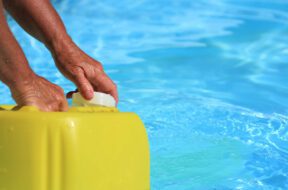

In this quick guide, we’ll answer the question “can you over shock a pool” and unveil the factors to consider when shocking a pool.



Maintaining both pH and total alkalinity in your swimming pool is important for keeping your pool properly sanitized and non-corrosive. Total alkalinity is to pH what cyanuric acid is to free chlorine. Total alkalinity stabilizes pH levels. The ideal pool pH level is 7.4 to 7.6. The ideal total alkalinity level is 80 to 120 ppm.
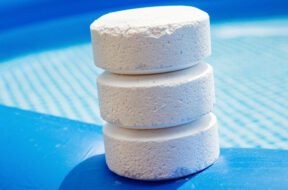

The Association of Pool and Spa Professionals recommends free chlorine levels for both swimming pools and hot tubs be kept between 2.0 and 4.0 ppm. However, the Center for Disease Control recommends free chlorine stay above 1 ppm in pools and 3 ppm in hot tubs.